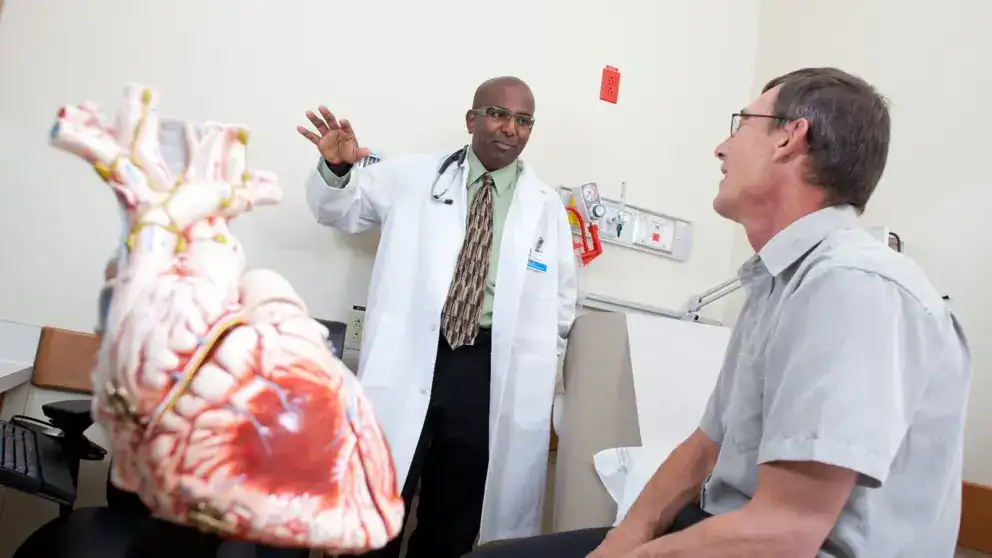Heart failure. The name says so much about this devastating condition, for which there is no cure. But now there is hope for preventing many cases of heart failure, thanks to a new discovery led by Heart & Stroke researcher Dr. Gavin Oudit.
What it is
Heart failure, also called congestive heart failure, is a complex syndrome caused by weakening of the heart such that it is unable to pump blood adequately to meet the needs of the body. More than 600,000 people in Canada are living with heart failure today, and another 50,000 are diagnosed every year. By 2030, it is expected to cost the Canadian economy $2.8 billion per year.
Heart failure is not an event; it is a long-term chronic condition that usually gets worse over time. People with heart failure experience debilitating symptoms such as shortness of breath, swelling and exhaustion.
At the University of Alberta, Dr. Oudit is passionate about his search for new therapies for heart failure.
Targeting a key cause
He led an international team that identified a molecule, P13K alpha, which leads to dilated cardiomyopathy, a condition in which the heart’s left ventricle becomes enlarged and weakened. Dilated cardiomyopathy is responsible for as much as 20% of all cases of heart failure.
By isolating this molecule, Dr. Oudit’s team believe they can develop targeted therapies for people with dilated cardiomyopathy, and reduce their risk of heart failure.
”If we can now identify patients with dilated cardiomyopathy, we can target them specifically,” Dr. Oudit explains. “That’s where we’re heading down the road. And to take this research right from the molecule to our patients, it’s very rewarding.”
Dr. Oudit holds the Canada Research Chair in Heart Failure, is the Director of the Heart Function Clinic at the Mazankowski Alberta Heart Institute, and receives funding from Heart & Stroke donors.
“My goal is to use the knowledge and collaborative strengths we have to translate basic discoveries in the lab into therapies to reduce the burden of heart disease on individuals, their families and the health system,” he says.
- Learn more about heart failure.
- Learn more about Heart & Stroke research.
